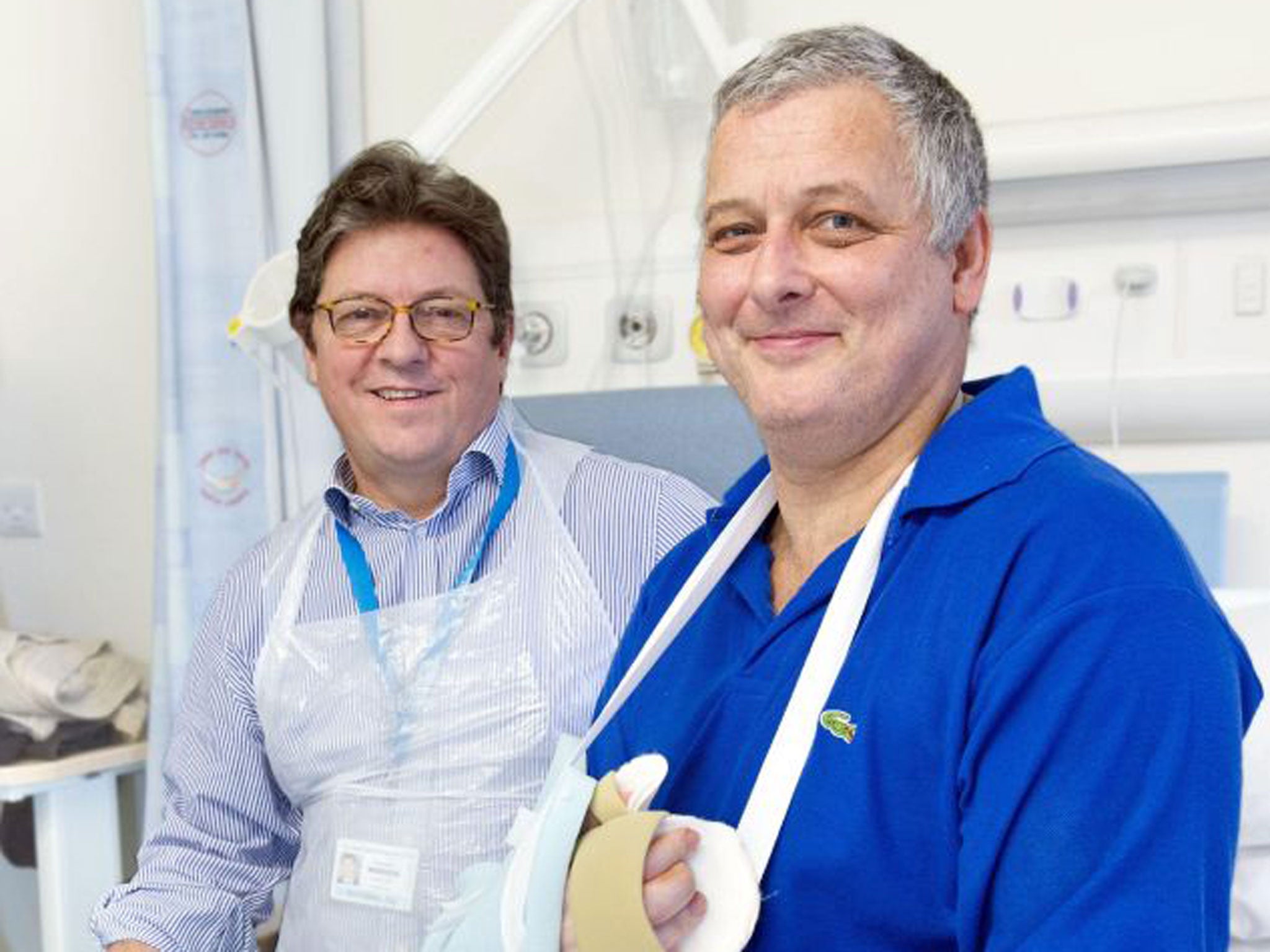Transplant man: ‘I want to hold grandson’s hand’

The former pub landlord who became the first man in Britain to receive a transplanted hand spoke today of his hope that he might one day use it to hold hands with his grandson.
Mark Cahill, 51, suffered for 20 years with gout which led to complete paralysis of his right hand, following an infection, and left him with limited use of his left hand.
“It made it virtually impossible to do anything,” he said. “My left hand I only had half use of and my right hand, no use at all. Everyday jobs, I couldn’t do. My wife had to help me dress and cut my food up and everything. Without any hands it’s very difficult.”
Mr Cahill had the surgery at Leeds General Infirmary last week. He was one of a dozen potential recipients recruited by the hospital, which had been preparing for the transplant for two years. The candidates were whittled down to two after taking medical and psychological tests to ensure they could cope with the new limb. When a donor became available after Christmas, Mr Cahill turned out to be the better tissue match.
Professor Simon Kay, who led the team that carried out the eight-hour operation, said Mr Cahill was an “impressively phlegmatic man”. “If all goes well, within 18 months, I would hope that he has quite a strong grasp, good sensibility in the hand and a precision pinch, which would be a huge improvement.”
Mr Cahill, who is married with a daughter, said he was delighted with the outcome so far. Speaking to ITV News, he added: “I’m getting slight movement now. The feelings are starting to come back and everything’s looking very good. It’s early days so we don’t know how it will turn out. Hopefully, I’ll be able to get back to work, cut my food up, tie my shoelaces and be able to hold my grandson’s hand.”
Experts said further progress with limb transplants would depend on developing better ways of controlling the immune response to prevent rejection. Mr Cahill will have to take immunosuppressant drugs for life, putting him at greater risk of cancer and infection. Doctors have worked for decades on ways of modifying human immune response. The ultimate goal is to allow transplants from animals, which is seen as the best solution to the global shortage of organs for transplant.
The Leeds team has been working closely with NHS Blood and Transplant and also colleagues in Lyon, France, where hand transplants were pioneered in 1998. The first recipient in France was Clint Hallam, a New Zealander who lost his original hand in a circular saw accident in jail in 1984. Two years after surgery, had his new hand removed,having decided he could not live with his new limb, taken from a motorcyclist who died in an crash.
His experience cast doubt on the procedure although surgeons have pointed out hand transplants have since been successfully completed in the US and France. Speaking of his new hand, Mr Cahill told the BBC: “When I look at it and move it, it just feels like my hand.”
Subscribe to Independent Premium to bookmark this article
Want to bookmark your favourite articles and stories to read or reference later? Start your Independent Premium subscription today.

Join our commenting forum
Join thought-provoking conversations, follow other Independent readers and see their replies